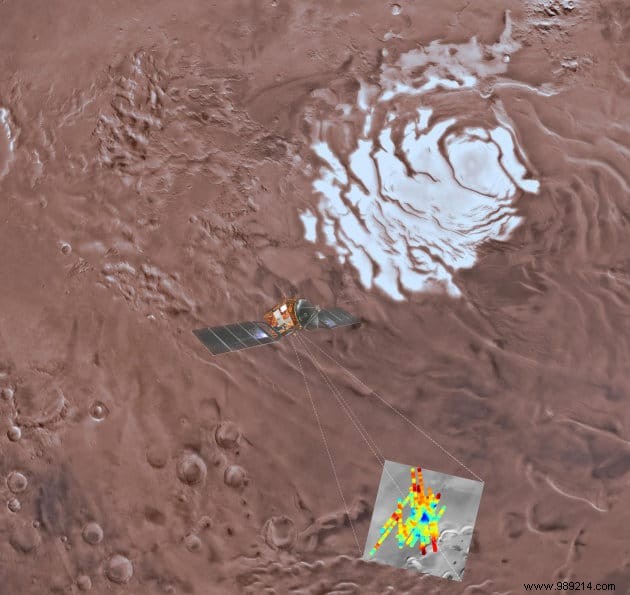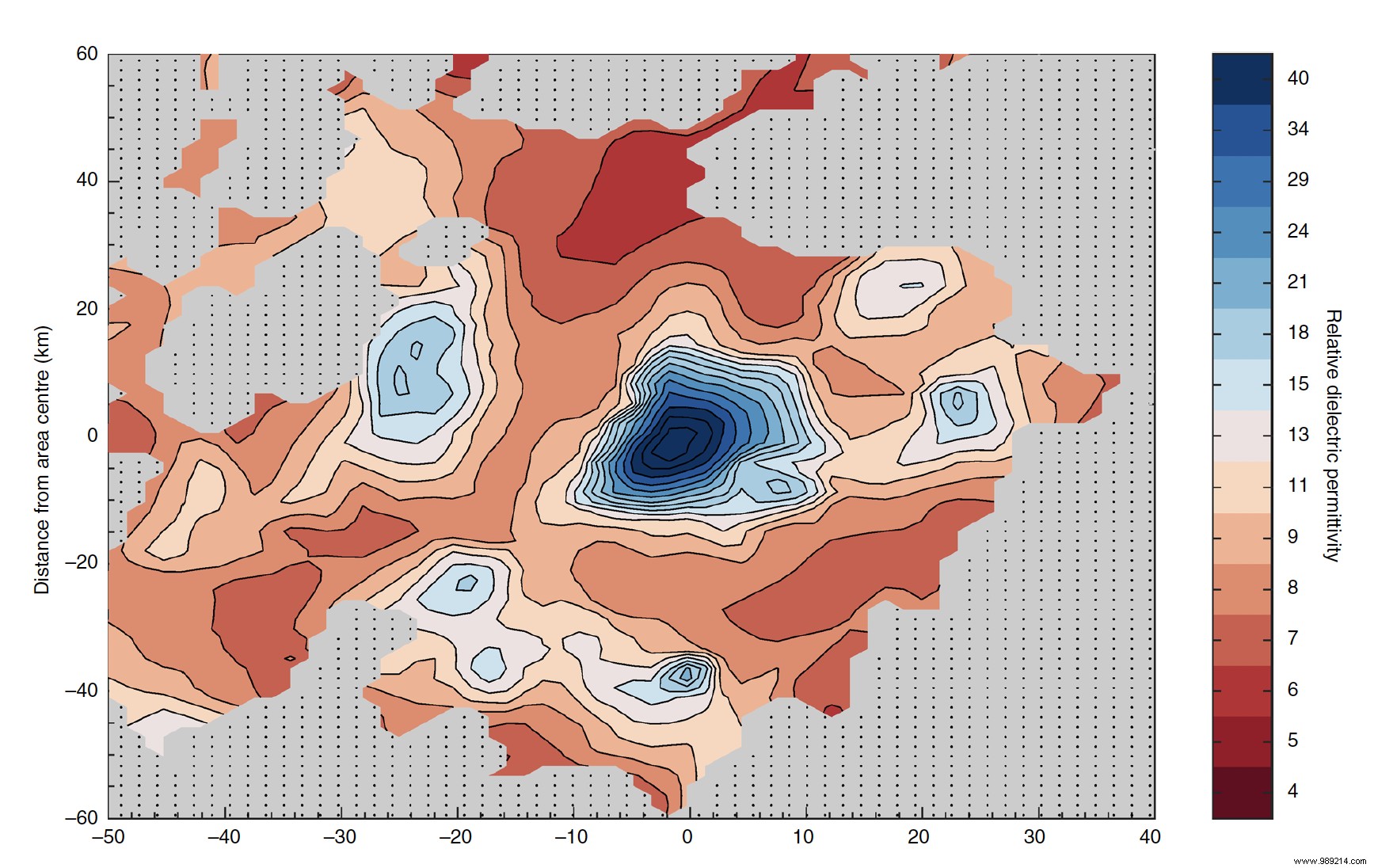Two years ago, a team of researchers announced the discovery on Mars of a lake about 20 km wide buried under a thick layer of ice. The same team announces today the discovery of new bodies of liquid water. However, not everyone is convinced.
In 2018 a team of researchers surprised the scientific community, announcing that they had isolated the presence of a lake about 1.5 kilometers below the surface frozen from the Martian south pole. This body of water, twenty kilometers wide and not very deep, “looks like one of the interconnected basins located under several kilometers of ice in Greenland and Antarctica” , then detailed Martin Siegert, geophysicist at Imperial College London.
To isolate it, the researchers relied on data from MARSIS, a radar installed on the Mars Express (ESA) probe, whose main role is to “scrutinize what lies below the Martian surface” .
To do this, the instrument analyzes the time it takes for a radar wave to return to the probe. This wave reacts differently depending on the materials crossed. About 1.5 km below the ice layer of the Martian south pole, the data collected did not match with the presence of ice, rock or simple sediments. The researchers then estimated that the most likely "matter" traversed was indeed liquid water.
This new discovery, if confirmed, would then mark a real turning point in the search for life on other planets. And for good reason:similar subglacial lakes on Earth, including Lake Vostok in Antarctica, are known to harbor microbial life.
Cassie Stuurman, a radar specialist at the European Space Agency, considered the discovery interesting at the time. However, she called for other evidence to confirm the presence of this liquid water on Mars. Water which, by the way, would have to be very, very salty in order not to be frozen (it is indeed -68°C under this layer of ice).

Proof, here is more. These same researchers indeed describe in the journal Nature Astronomy the discovery of new subglacial water bodies in the same region.
For this new study, the team again relied on MARSIS, this time scanning a much larger area (about 300 km wide).
This time the researchers used another method of analysis based on radar signal processing procedures typically applied to Earth's polar ice caps. They then confirmed the presence of the first lake discovered, and isolated three additional small bodies of water, deeper below the surface. All of these plots would be surrounded by dry bedrock.
“We compared the new results with the previous method and found very similar results” , confirms Elena Pettinelli, from the University of Rome III and main author of this work. “This new method gave us confidence in the validity and reliability of the results” .
According to the researcher, the presence of subglacial liquid water on Mars could therefore be more common than we think. “This new discovery forces us to consider the global processes of formation and stabilization of liquid water, which are essential pieces of the puzzle for our understanding of past and present climate, geology and conditions of habitability. possible on Mars” , she explains.

Again, the researchers did not detect water directly. They simply assume the presence of an aqueous and very salty solution buried under several kilometers of ice.
Despite everything, Cassie Stuurman is still skeptical. “To be completely honest, I expect this document will generate a lot of debate” , she said. “The idea that there could be large amounts of liquid water on present-day Mars is not a very popular hypothesis” .
Stuurman notably raises the fact that the team relied on a technique to detect subglacial lakes on Earth, and that they did “without any cross-validation” to show that this also works on "an entirely different planet" .